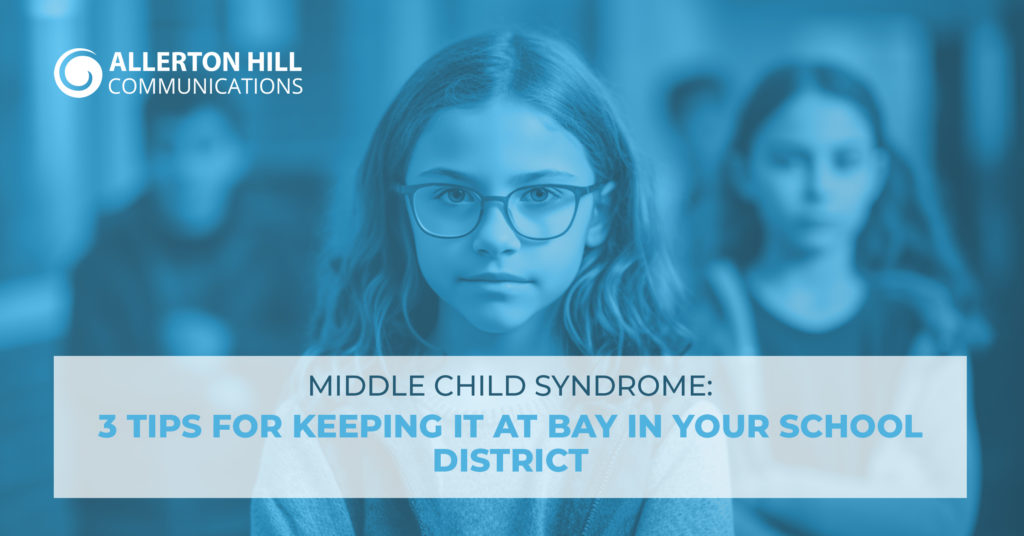Middle child syndrome: fact or fiction? As someone with a spouse who is a middle child, the resounding answer coming from my house is FACT!
Experts who study personality describe middle child syndrome as the idea that if you’re neither the oldest nor the youngest, you get less attention from your parents and feel “caught in the middle.”
When we apply this concept to school systems, it can in fact feel as if middle school students and parents sometimes get the short end of the stick. Their achievements no longer have the “rainbows and puppies” vibe that comes from being an elementary student, and they aren’t yet in the “graduation is nearing” phase of their educational journey.
What role does communication play in helping students and families in this tender group not feel overlooked? Here are three things you can do to ensure middle child syndrome is fiction in your district.
- Focus on the positive. Focusing on the positive is a strategy to be used across all grade levels, but especially at the middle school. Again, while this may not seem like the most exciting stage for students, they are experiencing many firsts. Middle school is often when students start diving into career exploration through various course offerings, participating in school-sanctioned clubs and sports for the first time, and can be recognized for their achievements through national organizations like National Junior Honor Society. There is plenty to celebrate!
- Overcommunicate. For many students and families, middle school is their first exposure to changing classes, and students are gaining more independence. Dealing with the expectations and communication styles of seven or eight different teachers can be overwhelming, especially when parents are already feeling less connected to teachers and their child. Don’t forget that all teachers and staff play a role in creating a positive experience and establishing a positive brand image. Over-communicating ensures that all stakeholders feel involved and in the know.
- Connect beyond the school day. Schools are increasingly becoming a resource for so much more than education. Hosting special events and connecting students and families to community resources beyond education helps drive parent engagement and positive public perception.
If you need help developing these strategies in your district, give Allerton Hill Communications a call at 800-549-2285 or email info@allertonhillcomm.com.



